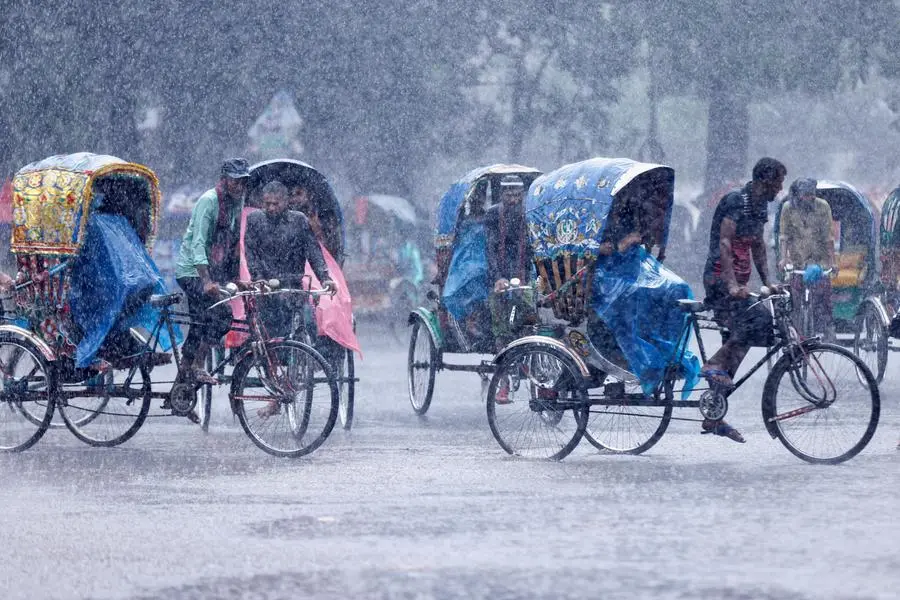PHOTO
Dhaka: Bangladesh is grappling with severe monsoon season which has impacted more than 18 million people, with over 1.2 million families trapped, according to the United Nations.
Sharing a post on X, the UN News Service said, "Over 18 million people in Bangladesh have been affected by severe monsoon conditions, with more than 1.2 million families trapped as flash floods submerge vast areas of the country's east and southeast."
The UNICEF said that the worst affected regions in the country include Chattogram and Sylhet, where major rivers are "flowing well above danger levels," further aggravating the situation.
The floods in Bangladesh have severely impacted people, with initial estimates indicating that five million people - including two million children - have been affected, many stranded without food and relief.
Twenty deaths have been reported as of Tuesday, and a further 2,85,000 have sought refuge in more than 3,500 shelters, UNICEF added. Roads, croplands, and fisheries have also faced massive damage, severely impacting livelihoods.
Government-led search and rescue operations are ongoing, with some areas inaccessible. UN partners in some places have reported that water levels are not expected to recede for at least a week, with the risk of persistent waterlogging and the accompanying threat of water- and vector-borne diseases.
Notably, on August 25, electricity was partially restored at Feni in Bangladesh after the flood water significantly receded, the Dhaka Tribune had reported.
Residents had said that water has fully drained from Mohipal Road and power is available in parts of Feni city, including the DC Office and its surrounding areas.
A resident of Feni city, Mohammad Riazul Hasan, had told the Dhaka Tribune, "The water level in the municipality area is significantly lower. But I heard that other areas are still inundated."
Riazul said the canals were overflowing in the downstream area in Sonagazi.
Rescue volunteers suffered from foot fungus due to prolonged exposure to water. Dhaka Tribune quoted Abdullah Al Mamun, a volunteer in Feni, as saying, "We have tried to reach Sonagazi on Friday. But we failed as we do not have speedboats."
Mamun said that load shedding and spotty mobile network caused difficulty in communication, which hampered the rescue process.
Bangladesh Chief Advisor Muhammad Yunus on August 24 had urged all parties to cooperate in addressing health and food risks once floodwaters recede, the Dhaka Tribune stated.
On August 22, Chittagong floods worsened after nine upazillas submerged, and 45,916 families, which had 2,48,050 individuals, were facing severe distress, the Dhaka Tribune reported.
Chittagong District Relief and Rehabilitation Officer Saifulah Majumder said that 800 tons of rice have been allocated for disaster relief, with 200 tons distributed across the affected areas.
Between August 19-21, over 3.5 lakh people were stranded in Feni city due to flooding after water entered the city through breeches, Dhaka Tribune reported.
© Muscat Media Group Provided by SyndiGate Media Inc. (Syndigate.info).




















